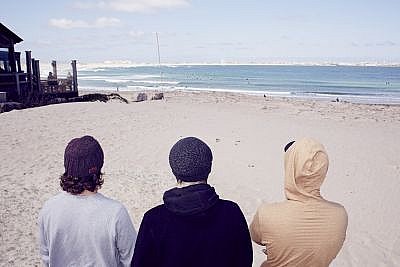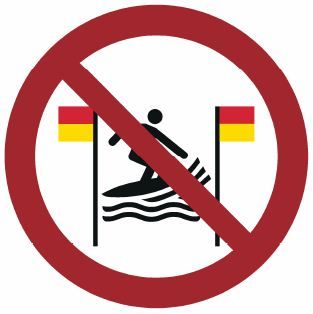No surf, or no common sense?
Earlier this week, the world of surf in Portugal was rather shocked when the beaches of Barra and Costa Nova in Aveiro, were closed surfers, enforcing a 14 year old law that had never been applied before. According to this law that had the purpose of managing the shoreline in Aveiro, sports such as surf and windsurf were forbidden in bathing zones, to ensure the safety of the many swimmers that can be found there in the summertime.
This draconian and peculiar prohibition can only be understood - and not totally - if we realize how far surf in Portugal has come to become an ex-libris of the Portuguese maritime landscape and a respected sport. But even 14 years ago, it was hard to understand why such strict measures had to be taken into consideration. That"s perhaps why the law has never truly enforced.
While Aveiro and Ílhavo are not usually among the top locations to surf in Portugal, the area remains highly popular for surf vacations in Portugal, but also for more traditional beach goers. It can be considered that the popularity of the beaches for swimmers may have triggered the move against surfing, but with no real implementation of this law to have been seen for the past decade, it was with tremendous surprise that the Portuguese surf world woke up last week to find several beaches adorned with "no surfing" signs.
Fortunately, a few days later, the mayor himself confirmed that an understanding had been reached where surfing was again allowed for as long as surfers committed to stay 50 meters away from the sand, so beach goers can swim safely. One might have a very tough time believing you can actually find anything resembling a decent wave beyond that 50 meter limit in the summer time. Not to mention that when it comes to safety, surfers are most often the first ones on spot to help swimmers in trouble.
Plus, the situation remains unclear, because while there is an understanding between surfers and the municipality, the latter is just turning a proverbial blind eye until the law itself is changed.
Again, while Aveiro and Ílhavo are mostly sought after by those looking to get a tan and a nice swim, surfers are indeed a strong part of the equation that makes these locations popular, with several surf hostels and houses in the area, plus a very proactive surf association. Thus, the measure has the potential to create a negative impact in the income and sustainability of surf businesses in the area.
Here's hoping that a more definitive and beneficial solution is found. We are certainly looking into the whole situation and will report on it as soon as there are new developments. With summer vacations just around the corner, though, the clock is ticking.
Is Aveiro a viable place for surf in Portugal?
 Yes, Aveiro remains a very popular surf centre in Portugal, although it is not as widely known as the beaches further south around Peniche, Ericeira or Alentejo. Beyond Barra e Costa Nova, the two beaches where the prohibition was for a while enforced, Aveiro has an extensive shore line with some of the best beaches in the north of Portugal, making it a rather populated area during the summertime. Several surf schools are also very active there.
Yes, Aveiro remains a very popular surf centre in Portugal, although it is not as widely known as the beaches further south around Peniche, Ericeira or Alentejo. Beyond Barra e Costa Nova, the two beaches where the prohibition was for a while enforced, Aveiro has an extensive shore line with some of the best beaches in the north of Portugal, making it a rather populated area during the summertime. Several surf schools are also very active there.
Known as the Portuguese Venice, because of its canals and rowing boats, and equally famous for it"s monastic pastry, Aveiro is a top tourist destination and is certainly an interesting place to visit if you want to enjoy some surf vacations in Portugal, in a place that not only has great environment, but also a lot of potential beyond the beach front.
So by all means, stop by Aveiro and get to know the locals. It will be great for you body and mind. But if you want to, you can always head down south for some of the best places for surf in Portugal, starting with Nazaré, the land of the record breaking waves, and further down, Ericeira, Peniche and Lourinhã.
This year, and regardless of any strange laws, there are great surf vacation opportunities to be found in Portugal, no matter if you"re a casual surfer, or a true pro.


 Fonte:
Fonte: 
